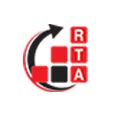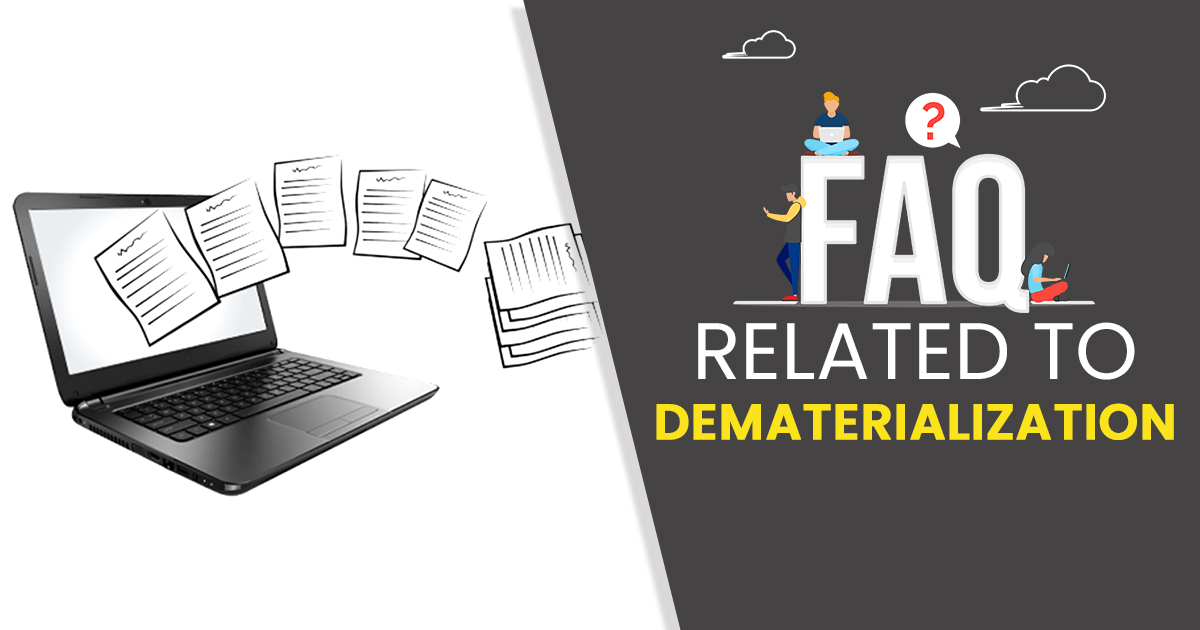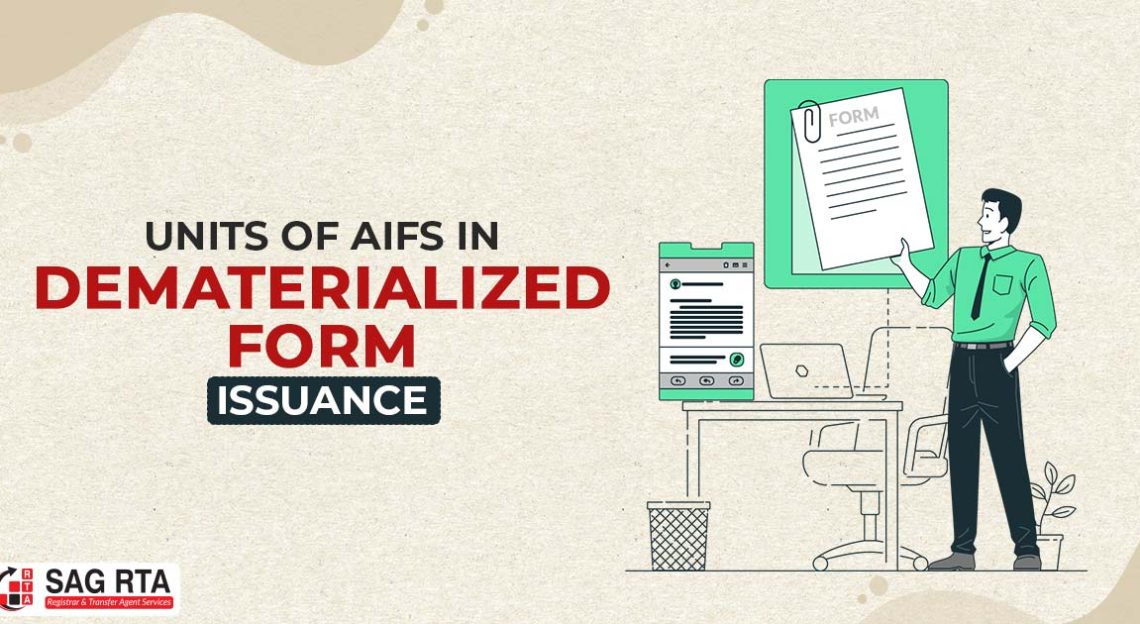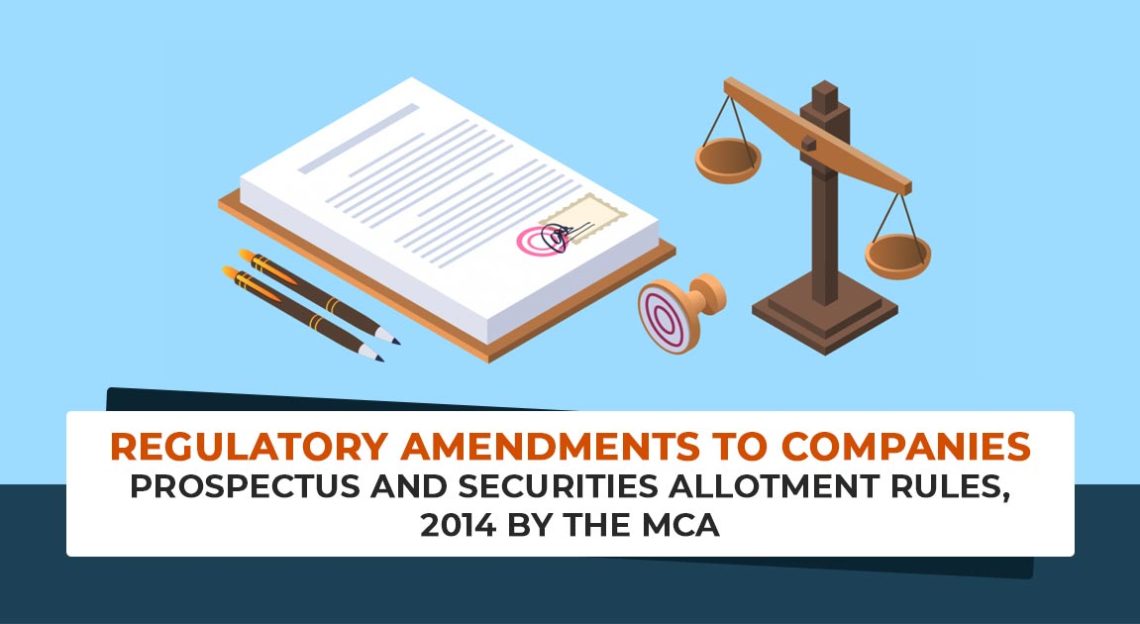Q.1 What is Dematerialization?
Dematerialization is a process to convert securities (i.e. shares, bonds, etc.) held in physical form into an equal number of electronic forms. The converted securities in electronic form will be credited into the Demat account of the investor maintained by him with his Depository Participant (DP).
Q.2 What are the benefits of holding securities in dematerialized form?
Below is the long list of benefits of holding securities in the dematerialized form:
- A convenient way to hold securities, especially when you are holding shares of multiple companies.
- Instant transfer of securities.
- No stamp duty will be applicable on transfer in Demat mode.
- Avoid risks such as fake securities, bad delivery, etc.
- A decrease in paperwork & Transaction cost.
- Time-Saving: Modifying address/bank account particulars etc. recorded with DP gets registered electronically with all companies in which the investor holds securities.
- Facilitates direct credit of shares in case of allotment under IPO, Bonus, Rights, Split, etc.
Q.3 Why is the need for dematerialization of Share? Is dematerialization mandatory for Trading Equity Shares?
All investors have to settle their trades in equity shares only in Electronic form, it has been made mandatory by SEBI. Therefore, it is necessary for shareholders wishing to trade in equity shares to Keep their shares in electronic form.
Q.4 What is the Process of dematerializing my share certificate(s)?
Here is the process of dematerializing shares held in physical form.
- Open a Beneficiary Account with a DP registered with SEBI and with one of the Depositories i.e., NSDL or CDSL.
- Get, duly fill, sign and submit the Dematerialization Request Form (DRF) (in triplicate) to your DP, attach original share certificate(s) and other requisite documents with it.
- Collect the acknowledgement from DP for the same.
- After receiving the aforesaid DRF, DP will create a Dematerialization Request Number (DRN) and will transmit the same through electronic mode to the share issuer by the concerned Depository.
- In addition, the DP will send the physical certificate(s) along with the DRF to the RTA for verification and confirmation process.
- The Corporation or the share issuer after receiving the DRF and Share Certificate(s) will take care of the further steps.
Note: Therefore, You should not submit your DRF and Share the certificate under no circumstances directly with the company.
Q.5 Is it possible to dematerialize the shares jointly held in physical form if the sequence of the names mentioned in the certificate differs from the sequence of names according to the Demat accounts?
Yes, you just have to submit the duly signed Transposition form along with the DRF and share certificate(s) with your DP.
Q.6 Is it possible to pledge demonetized shares?
Yes, dematerialized shares can be pledged for the purpose of availing any loan/credit facility or collateral arrangement with banks / financial institutions.
Q.7 If shareholders are holding shares in dematerialized form, are they eligible to receive the Annual Report and attend General Meetings?
Yes, they will receive notices, annual report, dividend, attend general meetings and participate & vote as per the scope of their shareholding.
Q.8 In respect of shares kept in Demat form, to whom should I inform about the change in my address, bank account details etc.?
All requests/ communication regarding change should be addressed to your DP directly.
Q.9 Whom should I contact in case of non-receipt of dividend, bonus etc.?
In such cases, you need to contact either the company or your Registrar and Share Transfer Agent.
Q.10 Can I delete the name?
Yes, You can, to do so contact your DP.
Q.11 What does the rematerialisation of shares mean?
It is a process of converting shares held in electronic form into physical form.
Q.12 What is the procedure for the rematerialization of shares?
The Process for rematerialisation of shares is given below
- Shareholders have to submit the duly filled Rematerialisation Request Form (RRF) to your DP.
- DP intimates the relevant Depository of any such requests and submits RRF to the Company’s Registrar & Transfer Agent.
- DP will create a Remat Request Number (RRN) and will send this RRN electronically to the Company/ Registrar and Transfer Agent (RTA) through the concerned Depository.
- After receiving the same RTA will verify it and allot the folio number to the shareholder and print the share certificate.
- The RTA will then send the share certificate to the shareholder through the registered AD.
- The depository updates the shareholder’s beneficiary account by removing the shares so rematerialised.
SAG RTA is Rajasthan’s 1st Register & Transfers Agent Services provider, It is authorized by the Securities and Exchange Board of India (SEBI) and It is providing all the services that meet the diverse needs of investors. SAG RTA is a full-service RTA Agent and our services include dividend payments through ECS transfers, dematerialization of securities through CDSL/NSDL depositories, updating details, and more. So if you are looking for a reputed RTA agent contact SAG RTA now.









